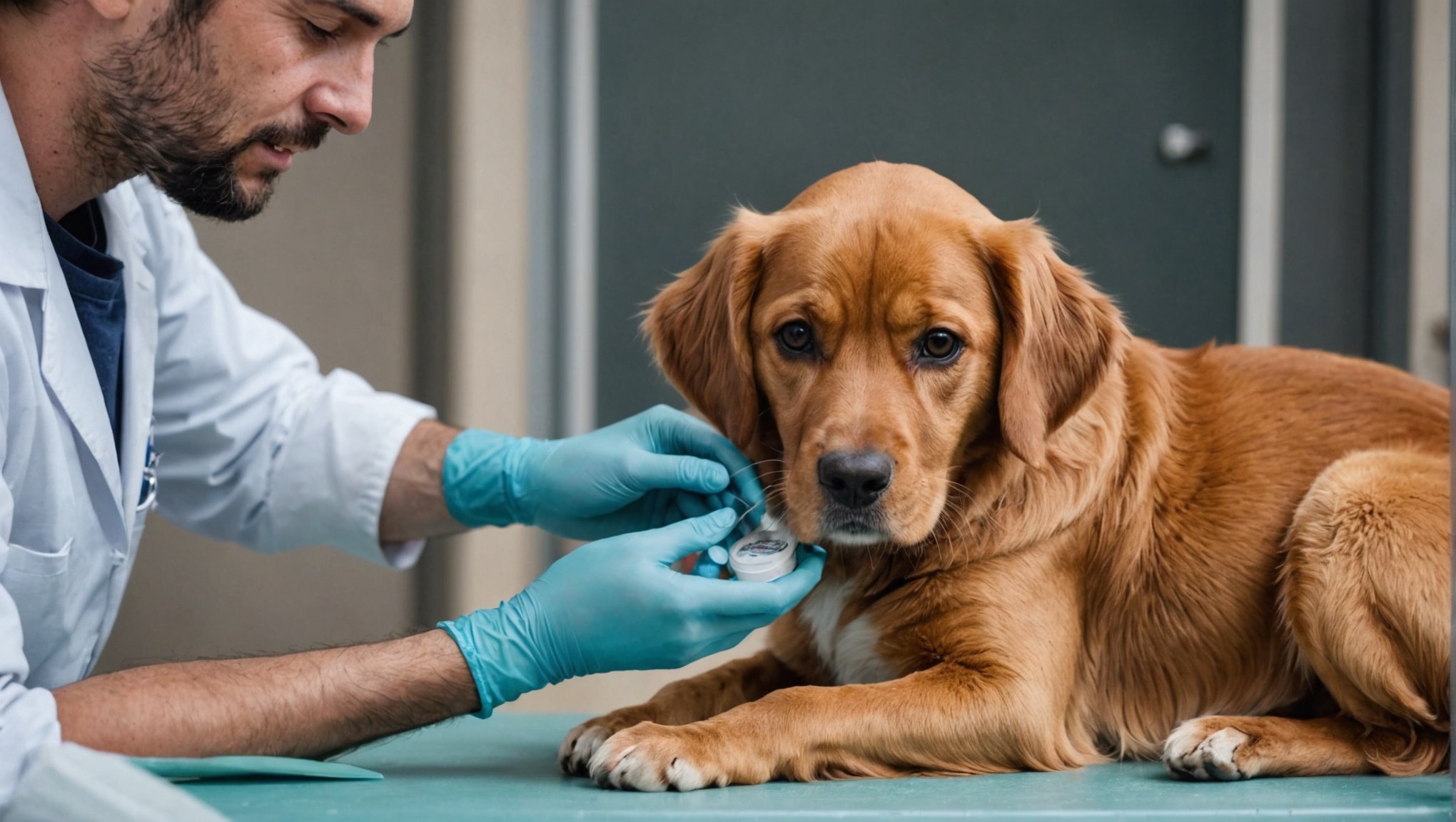Vaccinations for pets go beyond mere compliance with veterinary recommendations. They are vital for protecting your furry companions from preventable diseases that could drastically impact their health and well-being. Understanding the importance of these vaccinations empowers pet owners to make informed decisions, ensuring their pets lead happy, vibrant lives. Explore the benefits of timely vaccinations and how they contribute to broader community health, safeguarding not just your pet, but others as well. Prioritizing vaccinations fosters a sense of responsibility and compassion for all living beings.
Understanding Pet Vaccinations
Pet vaccinations are essential in safeguarding your furry companions from a range of diseases. Vaccinations work by stimulating an immune response, preparing your pet’s body to fight off infections. There are two main categories: core and non-core vaccinations.
In parallel : The Best Pet Products and Their Long-term Effects
Core vaccinations are deemed essential for all pets due to the severity and widespread nature of the diseases they prevent. These typically include vaccines for rabies, distemper, parvovirus, and adenovirus in dogs, and rabies, feline distemper, and calicivirus in cats. These diseases can be life-threatening and are often highly contagious, making these vaccinations crucial.
On the other hand, non-core vaccinations are recommended based on your pet's lifestyle, location, and risk of exposure. For example, the Bordetella vaccine is often suggested for dogs that frequent kennels or dog parks, as it protects against kennel cough. Similarly, the feline leukemia vaccine is advised for cats that spend time outdoors.
In the same genre : The Latest Pet Trends and Their Long-term Effects
The importance of vaccinations cannot be overstated. They play a vital role in preventing diseases, reducing the spread of infections, and protecting both your pet and the wider animal community. Vaccinations are a simple yet effective way to ensure your pet leads a healthy and happy life. Always consult with your veterinarian to determine the best vaccination plan for your pet.
Veterinary Recommendations for Vaccination
When it comes to vaccination schedules, following veterinary advice is crucial for the health of your pets. Veterinarians provide tailored schedules based on your pet's age, health status, and lifestyle. For puppies and kittens, initial vaccinations typically begin at 6-8 weeks of age. These early vaccinations are critical in building immunity against common diseases.
Recommended Vaccination Schedules
-
Dogs: Core vaccinations are generally administered at 6-8 weeks, 10-12 weeks, and 14-16 weeks. Boosters are then given annually or every three years, depending on the vaccine and veterinary advice.
-
Cats: Similar to dogs, kittens receive their core vaccinations at 6-8 weeks, 10-12 weeks, and 14-16 weeks. Boosters follow a similar pattern, with intervals determined by your veterinarian.
Age is a significant factor in determining the timing and frequency of vaccinations. Young animals require a series of shots to ensure adequate immunity, while adult pets may need less frequent boosters.
Importance of Following Veterinary Advice
Veterinarians assess your pet's specific needs and risks, providing expert guidance on necessary vaccinations. Adhering to their recommendations ensures your pet is protected against diseases and contributes to broader community health. Always consult your veterinarian to establish a vaccination plan that suits your pet’s unique circumstances.
Benefits of Vaccination
Vaccinating pets offers numerous health benefits. It provides crucial protection against serious diseases like rabies and parvovirus, which can be life-threatening. These diseases are not only dangerous to individual pets but can also spread rapidly within pet communities. By vaccinating your pet, you significantly reduce the risk of these infections.
Moreover, vaccinations contribute to herd immunity within pet populations. Herd immunity occurs when a high percentage of animals are vaccinated, reducing the overall spread of disease. This community-wide protection is vital, particularly for pets that cannot be vaccinated due to medical conditions. It creates a safer environment for all animals.
In addition to immediate protection, vaccinations offer long-term health benefits. They help maintain your pet’s health over time, reducing the likelihood of severe illness. This preventive measure is also cost-effective. While the upfront cost of vaccinations might seem significant, it is far less than the potential expenses of treating a serious disease.
In summary, vaccinations are an essential investment in your pet’s well-being. They ensure your furry friend remains healthy and happy while also protecting the wider animal community. Always consult your veterinarian to tailor a vaccination plan that best suits your pet's needs.
Risks of Not Vaccinating Pets
Choosing not to vaccinate your pets exposes them to significant vaccination risks and pet health risks. Unvaccinated pets are vulnerable to common diseases such as rabies, distemper, and parvovirus in dogs, and feline distemper and calicivirus in cats. These illnesses can be severe, leading to long-term health complications or even death.
The financial and emotional costs of treating preventable diseases can be substantial. Veterinary bills for treating serious illnesses often exceed the cost of regular vaccinations. Additionally, the emotional toll on pet owners watching their beloved animals suffer can be distressing.
Case studies have shown the tragic consequences of non-vaccination. For instance, outbreaks of parvovirus in areas with low vaccination rates have resulted in high mortality among puppies. In another case, a feline leukemia outbreak in a community of unvaccinated cats led to numerous fatalities and heartache for their owners.
By understanding the vaccination risks and pet health risks associated with non-vaccination, pet owners can make informed decisions to protect their furry friends. Vaccinations are a proactive way to safeguard your pet’s health and prevent unnecessary suffering. Always consult with your veterinarian to ensure your pet receives the necessary vaccinations.
Statistics on Pet Health Outcomes
Understanding the impact of vaccinations on pet health is crucial. Pet health statistics reveal that vaccination rates have a profound influence on health outcomes. Data shows that pets with regular vaccinations are significantly less likely to contract severe diseases. For instance, rabies and parvovirus cases are notably lower in vaccinated populations.
Vaccination Impact on Disease Prevalence
An analysis of disease prevalence highlights stark differences between vaccinated and non-vaccinated groups. In vaccinated populations, the incidence of illnesses like distemper and feline leukemia is drastically reduced. Conversely, non-vaccinated pets face higher risks of contracting these diseases, leading to poorer health outcomes.
Trends in Pet Health Improvements
Recent trends indicate substantial improvements in pet health due to increased vaccination efforts. As more pet owners adhere to vaccination schedules, there is a noticeable decline in disease outbreaks. This trend not only benefits individual pets but also enhances community health by reducing the spread of infectious diseases.
- Increased vaccination rates correlate with improved overall pet health.
- Disease prevalence is significantly lower in vaccinated populations.
- Community health benefits from widespread vaccination adherence.
In conclusion, these statistics underscore the critical role of vaccinations in promoting pet health and preventing disease.
Addressing Common Misconceptions
Misunderstandings about pet vaccinations can lead to unnecessary vaccination myths and hesitation among pet owners. One prevalent myth is that vaccinations cause health issues in pets. In reality, vaccines are rigorously tested for safety and efficacy before being approved for use. While mild reactions like slight fever or discomfort at the injection site can occur, serious side effects are rare.
Another concern is the fear of over-vaccination. Some pet owners worry that too many vaccines might overwhelm their pet's immune system. However, veterinary guidelines are designed to ensure pets receive only the necessary vaccinations based on their age, health status, and lifestyle. Following these guidelines helps maintain optimal health without overburdening the immune system.
Pet owner education plays a crucial role in dispelling these myths. By providing accurate information and addressing concerns, veterinarians can help pet owners make informed decisions about vaccinations. Understanding the science behind vaccines and their role in preventing disease is essential for responsible pet ownership.
- Vaccinations are thoroughly tested for safety.
- Over-vaccination fears are addressed with tailored veterinary guidelines.
- Educating pet owners helps dispel myths and encourages informed decisions.
By debunking these misconceptions, pet owners can better appreciate the importance of vaccines in safeguarding their furry companions.
Tips for Pet Vaccination Schedules
Establishing a vaccination schedule is crucial for maintaining your pet's health. To ensure effective vaccination timing, follow these essential guidelines. Start by consulting your veterinarian, who will tailor a schedule based on your pet's age, health status, and lifestyle. This personalised approach ensures that your pet receives the necessary vaccines at the right intervals.
Regular veterinary check-ups are indispensable in pet care. These visits allow veterinarians to monitor your pet's health and adjust the vaccination schedule as needed. They also provide an opportunity to discuss any concerns you might have about your pet's vaccination plan. Consistent check-ups ensure that your pet remains protected against diseases.
To stay on track with your pet's vaccinations, utilise reminders and veterinary resources. Many veterinary clinics offer reminder services, such as emails or text messages, to alert you when vaccinations are due. Additionally, some pet care apps can help you manage your pet's health records and vaccination schedule efficiently.
Incorporating these pet care tips into your routine will help you adhere to your pet's vaccination plan, safeguarding their health and well-being. By prioritising regular veterinary visits and using reminders, you can ensure your pet receives timely vaccinations and remains protected against preventable diseases.
Resources for Further Information
For those seeking comprehensive pet health resources, several reputable websites and organizations offer valuable insights into pet vaccinations. The American Veterinary Medical Association (AVMA) and the World Small Animal Veterinary Association (WSAVA) provide guidelines and updates on vaccination protocols, helping pet owners stay informed. These resources are essential for understanding the latest recommendations and best practices in pet care.
Choosing a qualified veterinarian is crucial for your pet's health. Look for professionals with strong credentials, such as board certification and membership in veterinary associations. A good veterinarian will have a proven track record in handling pet vaccinations and will be open to discussing your pet's specific needs. Regular veterinary consultations ensure your pet receives tailored care and timely vaccinations.
Maintaining open communication with veterinary professionals is vital. Regular check-ins allow you to discuss any concerns and adjust your pet's vaccination schedule as needed. These interactions also provide an opportunity to learn about preventive measures and emerging health trends. By staying engaged with your veterinarian, you can ensure your pet's health remains a top priority, benefiting from their expertise and guidance.
Conclusion on Vaccination Benefits
As a responsible pet owner, it's crucial to prioritise vaccination awareness to safeguard your pet's health. Vaccinations play a pivotal role in preventing serious diseases and ensuring the well-being of your furry companions. By understanding and adhering to recommended vaccination schedules, you actively contribute to your pet's long-term health and the broader animal community's safety.
Taking responsibility for your pet's health involves more than just vaccinations; it requires a comprehensive approach to pet care. Regular veterinary visits, proper nutrition, and exercise are all integral components of maintaining a healthy pet. However, vaccinations remain one of the most effective preventive measures against disease. They protect not only individual pets but also contribute to herd immunity, reducing the spread of infections.
Pet owner responsibility extends beyond individual care; it encompasses a commitment to community health. By ensuring your pet is vaccinated, you help prevent outbreaks and protect vulnerable animals that cannot be vaccinated. This proactive approach to pet health management underscores the importance of vaccinations in promoting a safe and healthy environment for all animals. Embrace your role as a responsible pet owner by staying informed and diligent about your pet's vaccination needs.
















